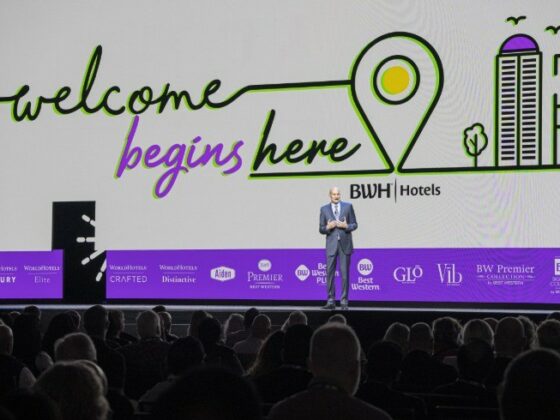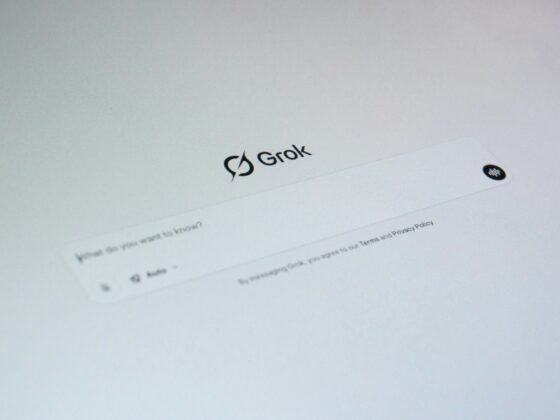
As hotels and travel brands compete in an increasingly digital landscape, AI-driven product information management (PIM) is emerging as a game-changer. From enhancing personalization in bookings to streamlining operations across multiple properties, AI-powered PIM solutions enable hotels to maintain accurate, real-time data across all channels while optimizing pricing, inventory, and guest engagement.
In this Q&A, Martin Balaam, CEO & Founder of Pimberly, shares insights on how AI-driven PIM can help hotels improve direct bookings, maintain data integrity across platforms, and balance automation with authenticity in marketing. He also explores the future of AI in hospitality, highlighting how these innovations will reshape guest experiences and hotel operations over the next five years.
How can AI-driven product information management (PIM) enhance personalization in hotel and travel bookings beyond basic recommendations?
An AI-driven PIM can transform hotel and travel bookings by generating personalized content, descriptions, and feature highlights tailored to individual hospitality preferences. Unlike with static data, AI can create dynamic and engaging descriptions that resonate with different traveler personas.
Hospitality businesses can gather real-time information about the travel destination, offering personalized recommendations for excursions, must-visit attractions, and dining options. This level of personalization ensures travelers receive a curated experience that aligns with their interests, enhancing satisfaction and engagement.
What role does AI play in helping hotels improve dynamic pricing and inventory management?
AI enables hotels to move beyond traditional fixed pricing algorithms by analyzing a vast range of factors, including demand trends, competitor rates, local events, and individual customer price sensitivity. By continuously learning and adapting, AI can predict peak occupancy periods and optimize pricing strategies accordingly.
This dynamic approach helps hoteliers maximize revenue per night while maintaining competitive occupancy rates. AI’s ability to factor in real-time data ensures hotels remain agile and responsive to market fluctuations and traveler expectations.
With hotels increasingly focused on direct bookings, how can AI-driven PIM solutions help them compete with OTAs and group travel sites?
As more travelers use AI-powered search engines to find accommodations, a robust next-gen PIM system ensures that a hotel’s data—images, videos, and room details—is AI-friendly and easily accessible.
This increases the chances of a hotel appearing in search results with accurate and compelling information. Additionally, hotels can deploy AI-driven chatbots powered by PIM data to provide instant, colloquial responses to complex booking queries.
For example, a user could use the prompt, “I have a specific budget for a three-night stay in June 2025; what are my best options?”—a search that would be time-consuming using traditional website filters. This direct engagement improves the booking experience and encourages users to book directly instead of through OTAs.
Data inconsistencies across channels remain a major challenge for hoteliers. How does PIM technology ensure accurate, real-time updates for room rates, availability, and amenities?
PIM platforms act as a centralized source-of-truth for all hotel-related data, ensuring consistency across booking platforms, hotel websites, and third-party aggregators.
They also establish governance rules to control who can update information, preventing unauthorized changes and data discrepancies. By integrating with various data sources—such as APIs, portals, and direct input feeds—a PIM system ensures that room rates, availability, and amenities remain accurate in real time.
Additionally, built-in validation workflows detect errors, fill gaps, and trigger approval processes, ensuring only verified data is distributed across channels.
Many hotels struggle with outdated or incorrect property information appearing on third-party sites. How does PIM help maintain data integrity across multiple platforms?
A PIM system like Pimberly guarantees that all external platforms receive the most up-to-date and accurate information by integrating directly with third-party booking sites and distribution channels. When businesses in hospitality leverage PIM, they allow for seamless data synchronization, therefore reducing the risk of outdated listings.
Also, digital shelf analytics tools within a PIM platform allow for monitoring third-party sites for discrepancies, alerting hoteliers to incorrect or missing data. Hotels can also provide agents with a dedicated online portal where they can access the latest property information, ensuring a consistent brand presence across all touchpoints.
How can hotels use centralized PIM systems to streamline operations, especially for multi-property brands managing multiple distribution channels?
Enterprise PIM systems are designed to handle the complexities of large-scale hospitality businesses. They let thousands of hoteliers update data in real time while distributing it across multiple booking agents and platforms. These systems can manage millions of rooms, excursions, and amenities across global locations, allowing for unprecedented consistency and efficiency.
By centralizing content and automating distribution, PIM solutions reduce manual effort, prevent data inconsistencies, and improve overall operational efficiency for multi-property brands managing diverse distribution channels.
Given the rise of AI-generated travel content, how should hotels balance automation with maintaining authentic, trustworthy information?
AI-generated content can significantly reduce costs and speed up content creation for hotels and travel agencies—but it must be carefully used with human oversight for accuracy and brand consistency. The ideal approach is to use AI for the initial draft, followed by human review and refinement to correct errors and maintain authenticity.
AI can also assist in generating high-quality, eCommerce-ready images to enhance property listings.
Basically, by combining automation with human oversight, hotels can leverage AI’s efficiency while making sure the information remains trustworthy and aligned with their brand voice.
As guest expectations for transparency increase, what best practices should hotels follow to ensure marketing matches the actual guest experience?
Hotels must treat AI-generated content with the same scrutiny as traditional marketing materials, so that descriptions, images, and offers align with reality. For boutique hotels, AI can provide an excellent starting point for content that staff can refine for authenticity and a hyper-personalized touch to have a specific ‘voice’ for their smaller shops.
Larger hotel chains, on the other hand, can benefit from AI-driven content creation to maintain brand consistency at scale while implementing AI-powered verification tools to detect misleading or off-brand language. By keeping consistent across all marketing channels, hotels and travel companies can build trust and enhance guest/traveler satisfaction.
What trends do you foresee in AI-driven product information management that could reshape the hospitality industry in the next five years?
An AI-driven PIM is poised to revolutionize hotel marketing and operations by automating content generation. This includes room descriptions, feature highlights, and SEO-optimized text tailored to different traveler demographics.
AI will also provide real-time sentiment analysis from customer reviews across social media and comparison sites, helping hotels adjust strategies to maintain a competitive edge.
AI will also assist in decision-making when upgrading properties by analyzing guest preferences and market trends. With AI handling content creation and analytics, hotels will be able to primarily focus on optimizing their offerings, improve visibility in search engines, and deliver stellar experiences to guests where they will have the most impact.








